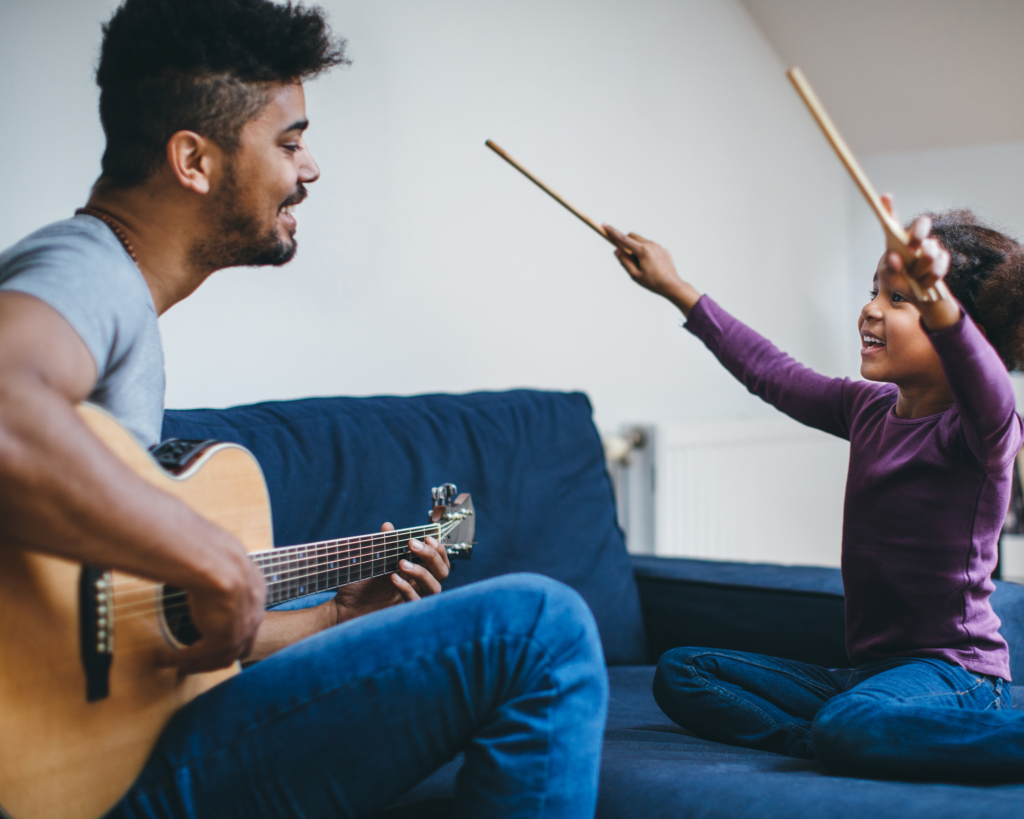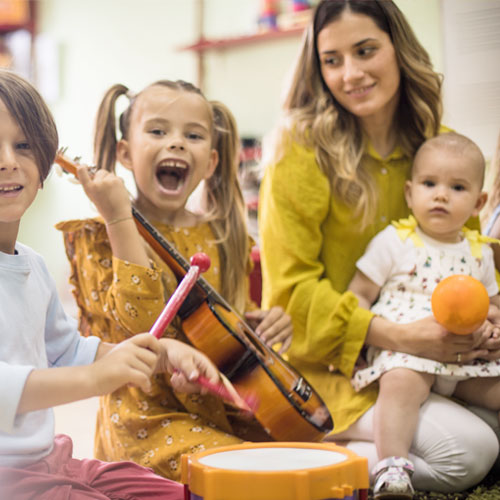Back when I used to teach early childhood music classes, my favourite part was witnessing the beautiful smiles and giggles that were shared between mother and child when they interacted through music. I could see what an incredibly powerful tool music can be for nurturing relationships.
Beyond my own observations, there is a plethora of research that confirms music is a wonderful way to establish and maintain social bonds. It is not surprising then, that according to a recent study, music has played an important role in supporting parent-child relationships during the often stressful and difficult times of the Covid-19 pandemic.
Parents spent more time making music with their kids
Due to lockdowns, quarantine and isolation, families have spent increased time together. And depending on the family’s situation, this has had both negative and positive impacts. One welcome benefit of the slower pace of life has been extra time for parents to engage in activities with their children.
A study published last year surveyed parents in the U.S and Canada and found that parents took part in music activities with their children more frequently than before the pandemic. They used music as a tool for social connection and emotional regulation.

Music strengthened relationships
Most notably, the research indicated that parents felt closer and more connected to their children when they participated in active music making with them. This included activities such as playing instruments, dancing to music and singing together. Non-music making activities on the other hand did not have the same impact.
These survey findings are backed by decades of research that demonstrates how music helps bring about social closeness.
Scientists believe music strengthens social bonds in many ways. Singing has been shown to raise oxytocin levels – a hormone known to play an important role in increasing bonding and trust between people. Mother’s who sing to their babies have reported stronger bonds with their infants than those who do not.
Dancing and beat-keeping have been linked to the release of pleasure chemicals (endorphins in the brain). People also feel uplifted when they co-ordinate and synchronise their movements with others.
Furthermore, studies have revealed families who listen to music together have higher social cohesion. Sharing a favourite song or piece of music can encourage connection and create a sense of belonging.
Music reduced stress
During Covid-19, family stress and conflict has risen and in some cases has placed unprecedented strain on parent-child relationships. Music has long been recognised as a tool to improve mental health, which is undoubtedly why many of the parents who responded to the U.S study used music to help regulate their own and their children’s emotions.
“The [research] results indicate that music may be an effective tool for building and maintaining parent-child relationships during a period of uncertainty and change.“
“Parents agreed or strongly agreed that listening to and making music helps to regulate their emotions, regulate their child’s emotions, and helps them to socially connect with their children.”
– Selena Steinberg, Talia Liu, Miriam D. Lense.
According to a 2003 study parents who made music with their young child on a daily basis were less depressed than those who did not. In a recent report from the Global Council on Brain Health (GCBH) music has been shown to have a positive effect on mental health, including mood, anxiety and stress.
Share music activities with baby…
Now we know that music plays a key role in emotional wellbeing and sense of connectedness during troubled times. But, caregiving responsibilities and family life, particularly during the early years, also comes with its own set of hardships and stress. What’s more, bonding time is always important. Incorporating a little bit of music-making into daily life is easy to do, as is the case for the many parents and babies who enjoy the Bubble Box music activities.
So why not get out the pots and pans and have a jam, play your favourite music and dance around the house, or sing a fun song loud and proud? You will soon be sharing plenty of those beautiful smiles and giggles with your little one.


0 Comments